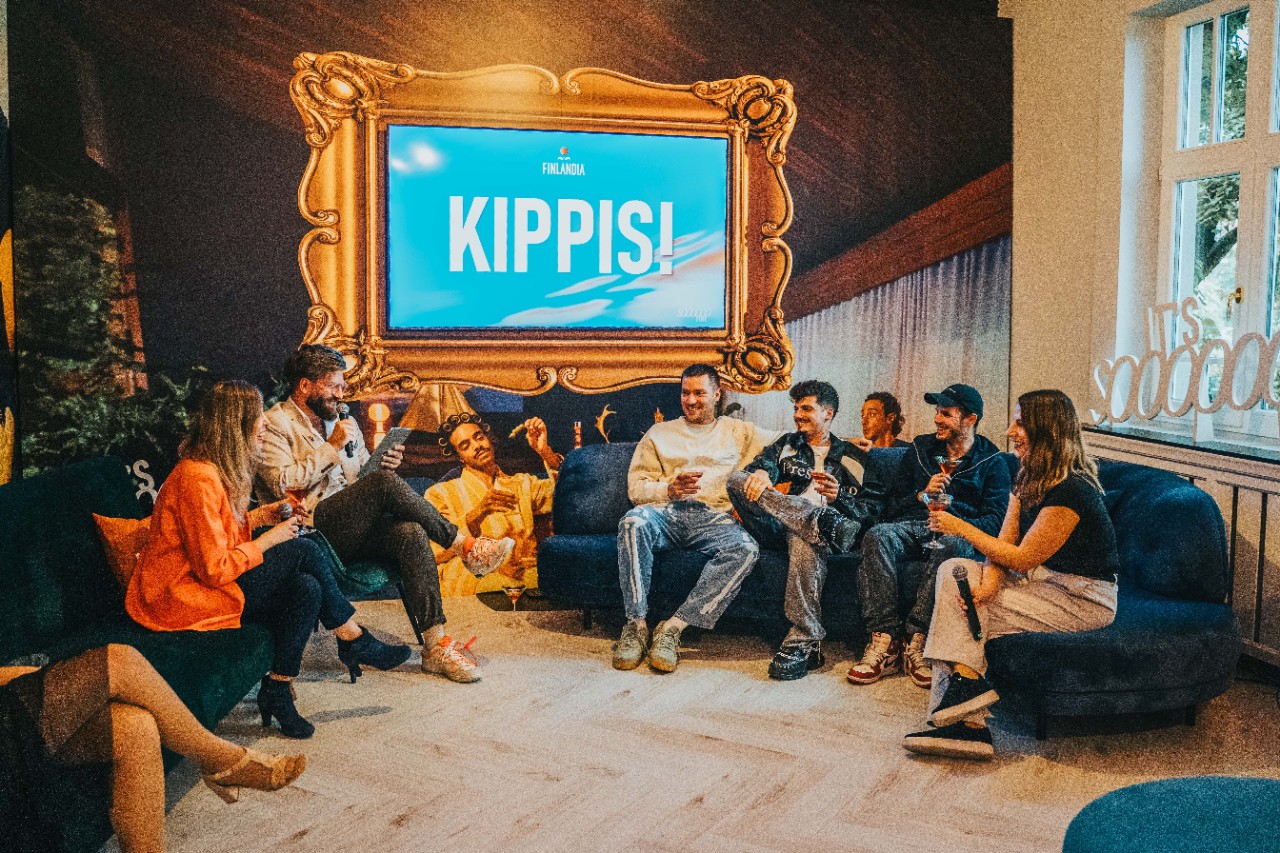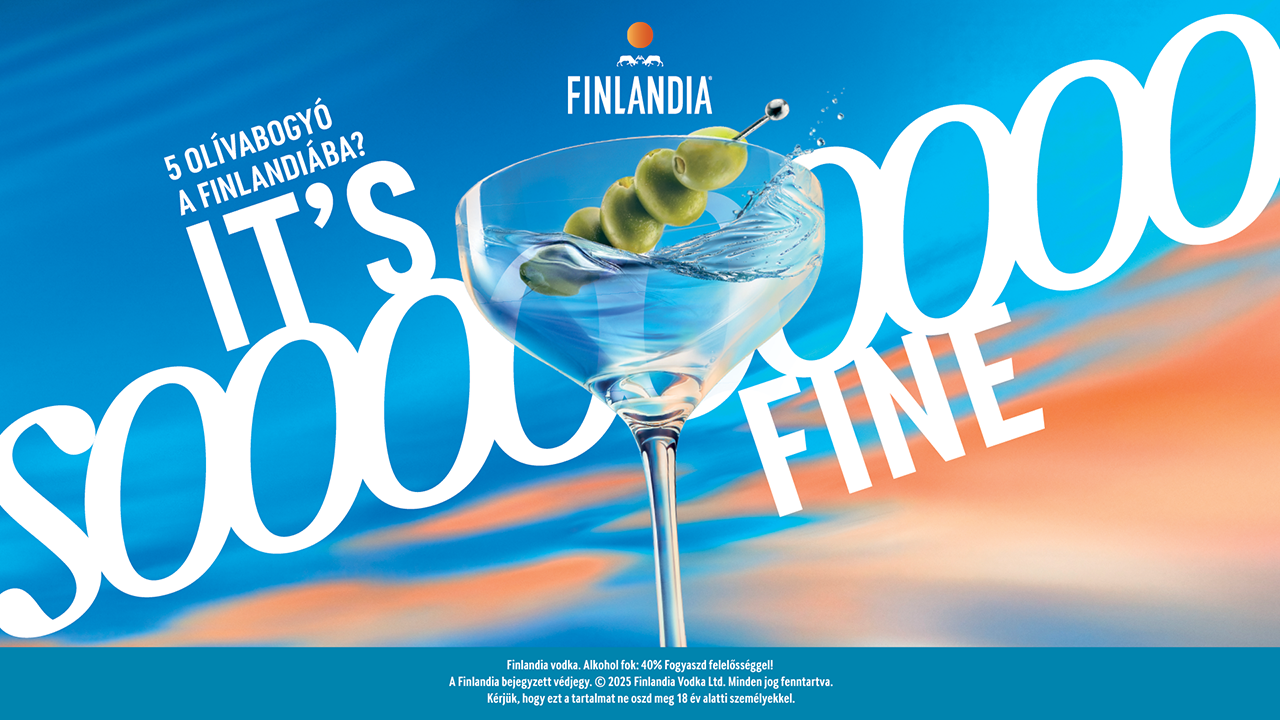As Finlandia Vodka unveils its new global marketing campaign targeting Gen Z audience, the brand’s local research reveals personal relationships are becoming increasingly important for young adults
Site Selector
Current Site: Hungary
Site Selector
Current Site: Hungary


As Finlandia Vodka unveils its new global marketing campaign targeting Gen Z audience, the brand’s local research reveals personal relationships are becoming increasingly important for young adults
35% of Hungarian youth aged 18–29 would gladly reduce their online presence to recharge or spend more time with loved ones, according to new research conducted by Finlandia Vodka. Although members of Gen Z have grown up as digital nomades, they are increasingly realizing that genuine connection is best experienced offline. The survey found that 34% of young respondents consider time spent with family and friends one of the greatest sources of joy —clearly signalling a renewed appreciation for personal relationships. Finlandia Vodka’s new global campaign directly responds to these shifting values by encouraging the enjoyment of authentic moments of pleasure on our own terms.
As an antidote to the complexity and over productivity of modern life, members of Generation Z make time for and celebrate the things that bring them pleasure. They are increasingly craving their own time and space to indulge in pleasure without pressure. This is the key insight behind premium drinks brand Finlandia Vodka’s new global campaign approach called “It’s Sooooooooo Fine” that celebrates both how Finlandia can facilitate those easy-going moments of pleasure and the unique character of the drink – the vodka that’s easy on the tongue and made silky-smooth by Finland’s ‘Midnight Sun’.
The brand now seeks to connect with a younger adult audience in Hungary, by tapping into the cultural shift towards more mindful and values-driven alcohol consumption. The representative research[1], conducted on behalf of Finlandia Vodka in the country, shows that while Generation Z is actively present in the online world, many are becoming aware of its psychological burdens and are consciously seeking opportunities for offline experiences.
Online Presence vs. Offline Experience
Although most Hungarian youth use online platforms daily, an increasing number are recognizing signs of digital overload: according to the research, one-third of respondents feel the need for a digital detox. However, this recognition rarely translates into action—10% say they feel unable to relax without being constantly online. One driving factor is FOMO (fear of missing out) – more than half of 18–29-year-olds fear missing out if they are not immediately accessible.
This contradiction often leads to internal conflict: while many long for quality personal connections, they struggle to let go of constant online presence. For example, 34% of respondents would feel anxious if they had to put down their phone for 24 hours. On the other hand, nearly a quarter would be open to trying it, and 10% already regularly take breaks from their phones. Encouragingly, 22% of Generation Z respondents are consciously trying to incorporate offline experiences into their daily lives—meaning some are already taking concrete steps.
While most Hungarian youth are online daily, many are feeling digitally overload—one-third say they need a digital detox. Still, 10% admit they can’t relax without constant connectivity, driven by FOMO (fear of missing out), which affects over half of 18–29-year-olds. This creates a tug-of-war: 34% feel anxious being offline for a day, yet nearly a quarter are open to trying it, and 10% already take regular breaks. Encouragingly, 22% of Gen Z are actively building offline habits into their routines.


From surviving to trulylliving the moment
The research indicates that activities such as listening to music and reading (35%), watching series or movies, and participating in social gatherings (34% each) are keyways for Generation Z to recharge.
43% of this age group are already consciously making time for in-person connections. However, one in four respondents reported that the fast pace of daily life makes it hard to slow down, and 17% feel they are simply “surviving” each day.
One of the biggest obstacles to being present is mental exhaustion—nearly a third (29%) of respondents cited this as a barrier. An additional 23% reported that their minds are constantly occupied with other tasks, making it difficult to live in the moment.
The research shows that Gen Z recharges through activities like listening to music or reading (35%), watching shows or movies, and socializing (34%). While 43% are intentionally making time for in-person connections, daily pressures remain a challenge—one in four struggle to slow down, and 17% feel they’re merely “surviving.” Mental exhaustion is a major barrier to being present, with 29% citing it directly, and another 23% saying their minds are constantly preoccupied.
Genuine moments, easy-going pleasures
The research clearly shows that more and more young people long for deeper connections and greater mindfulness. Although 31% of Generation Z meet with friends weekly and 16% do so daily, everyday responsibilities often hinder personal interactions. As psychologist Christina Buda explains: “Digital overload and constant availability can lead to mental exhaustion, especially among young adults.” She adds that even small habits can help reduce this fatigue: “The first step is awareness—pay attention to your reactions, energy levels, and how your mood or focus changes throughout the day, then gradually introduce habits that support offline presence. This could be a phone-free dinner or an evening walk without music or social media, simply focusing on your thoughts.”
According to the expert, the changes seen among young people reflect a global trend: seeking offline connection and shared moments helps redefine what it means to feel well. This perspective is reflected in the relaunch of the Finlandia brand. The "It's Sooooooooo Fine" campaign draws attention to the notion of pleasure without pressure as well as the importance of genuine connections – how much the moments we experience honestly and in tune with each other mean.
The research highlights a growing desire among young adults for deeper connections and greater mindfulness. While 31% of Gen Z meet friends weekly and 16% daily, daily responsibilities often limit these interactions. As psychologist Christina Buda explains: “Digital overload and constant availability can lead to mental exhaustion, especially among young adults.” She adds that even small habits can help reduce this fatigue: “The first step is awareness—pay attention to your reactions, energy levels, and how your mood or focus changes throughout the day, then gradually introduce habits that support offline presence. This could be a phone-free dinner or an evening walk without music or social media, simply focusing on your thoughts.”
These shifts mirror a global trend—young people are redefining well-being through real-world connection. This mindset is echoed in the relaunch of Finlandia’s ’It’s Sooooooooo Fine’ campaign, which celebrates pleasure without pressure and the value of authentic shared moments.
Both global and local success support this philosophy: Finlandia Vodka ranks among the world’s top ten Standard+ vodka brands. In Hungary, the brand is a leading player in the premium vodka market, valued at HUF 5.87 billion.
[1] About the Research
The data comes from an online survey conducted by Europion with a sample of 1,200 Hungarian residents aged 18 and over.
DRINK RESPONSIBLY!
Finlandia vodka. Alcohol level: 40%. Finlandia is a registered trademark. ©2025 Finlandia Vodka Ltd. All rights reserved.
To learn more about responsible drinking, visit italmertek.hu and ourthinkingaboutdrinking.com web pages.
Allother trademarks and brand names are the property of their rightful owners. Please do not share this content with anyone under the age of 18.